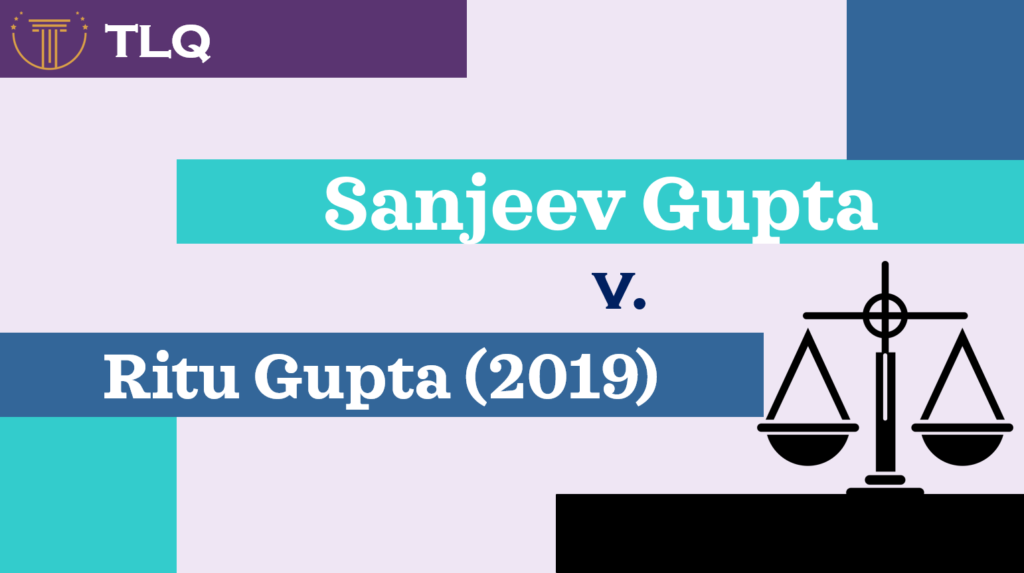Published On: 2nd April, 2024
Authored By: Aarush Sharma
JIMSEMTC, Department of Law (Affiliated to GGSIPU)
ABSTRACT
Necrophilia, the sexual attraction or engagement with corpses, remains a deeply taboo and rarely discussed topic in India. This article explores the legal landscape and societal implications of necrophilia in the Indian context. Despite the absence of explicit legal provisions, certain sections of the Indian Penal Code may be applicable to necrophilic acts. However, prosecuting such cases poses significant challenges, compounded by cultural sensitivities and societal stigma. Understanding and addressing necrophilia requires navigating complex ethical considerations, including questions of consent, dignity, and post-mortem rights. By shedding light on this taboo subject, this article aims to foster informed discourse and advocate for legal and societal interventions that uphold human dignity and rights, even in death.
– Keywords: Necrophilia, Corpses, laws, sexual intercourse, sexual attraction, psychological factors, mental disorder
INTRODUCTION
Necrophilia, the traumatic phenomenon of sexual appeal or engagement with corpses, is a subject shrouded in taboo and secrecy globally. within the context of India, a state deeply rooted in cultural traditions and societal norms, addressing necrophilia poses precise challenges. regardless of its unsettling nature, necrophilia warrants attention from criminal, societal, and moral views to make sure justice, dignity, and admiration for the deceased and their families.
In this article, we embark on an exploration of necrophilia in India, analyzing its legal implications and societal ramifications. at the same time as the Indian legal framework does not explicitly deal with necrophilia, certain provisions in the Indian Penal Code, 1860 (IPC) and other laws provide potential avenues for addressing such acts. however, prosecuting necrophilic instances offers bold hurdles, consisting of the gathering of evidence and navigating societal stigmas and taboos surrounding demise and sexuality. Beyond criminal issues, societal attitudes towards necrophilia in India are deeply entrenched in cultural, spiritual, and ethical ideals. The sanctity attributed to the deceased, coupled with societal taboos surrounding death and sexuality, contributes to the reluctance to acknowledge and confront necrophilia brazenly. furthermore, the intersection of patriarchy and societal norms similarly complicates discussions around this taboo problem, as we delve deeper into the felony views and societal implications of necrophilia in India, it turns obvious that addressing this difficulty calls for a multifaceted technique. moral issues surrounding consent, dignity, and post-mortem rights need to be cautiously weighed towards the complexities of cultural norms and legal frameworks.
Within the subsequent sections of this article, we will explore the legal landscape surrounding necrophilia in India, examine societal perceptions and implications, and endorse capacity avenues for legal and societal intervention. through unveiling the taboo surrounding necrophilia, we propose to stimulate knowledgeable discourse and endorse measures that uphold human dignity and rights, even in demise.
MEANING OF NECROPHILIA
In the historic world, sailors returning corpses to their home country had been frequently accused of necrophilia. within the records, singular accounts of necrophilia were sporadic. but, written information has highlighted that the practice became present in historical Egypt. Necrophilia is a psychosexual disease characterized by a chronic sexual appeal to corpses. people who have interacted in necrophilic conduct may also enjoy sexual arousal and gratification from contact with dead bodies. This appeal might also occur in numerous ways, which include sexual acts with corpses, fantasies related to dead bodies, or the desire to examine or touch deceased people in a sexual manner.
Necrophilia is considered a paraphilic disease, which means it involves unusual sexual interests or behaviors that deviate from societal norms. it’s far often seen as a taboo and highly stigmatized behavior, with significant legal and moral implications. because of its traumatic nature, necrophilia is a subject of fascination and repulsion in famous traditions and has been the focus of psychological research and forensic investigation.
CAUSES OF NECROPHILIA
- Psychological Factors: Childhood trauma: a few individuals who have experienced adolescent trauma, which includes abuse or neglect, can also develop maladaptive coping mechanisms, such as paraphilic behaviors like necrophilia.
Personality disorders: certain character disorders, consisting of delinquent personality ailment or borderline character ailment, can be associated with an elevated risk of accomplishing paraphilic behaviors.
Sexual orientation confusion: some folks who struggle with understanding or accepting their sexual orientation may also broaden unconventional sexual fantasies or behaviors, which includes necrophilia.
- Biological Factors: Brain abnormalities: a few research have advised that abnormalities in brain structure or function, specially in areas related to impulse control and sexual arousal, may additionally contribute to paraphilic behaviors like necrophilia.
Hormonal imbalances: Imbalances in certain hormones, consisting of testosterone, can also affect sexual conduct and arousal styles, potentially contributing to paraphilic hobbies.
- Social and Environmental Factors: Early exposure to pornography: Publicity to sexually specific material, especially at a young age, can also influence sexual choices and fantasies, doubtlessly leading to the development of paraphilic behaviors.
Social isolation: Feelings of loneliness or social isolation may additionally contribute to the development of paraphilic fantasies or behaviors as a way to deal with emotional misery or lack of social connection.
- Learning and Conditioning: Associative learning: a few individuals can also develop paraphilic interests via associative learning, wherein they come to partner sexual arousal with unconventional stimuli, which include corpses, through repeated publicity or reinforcement.
Social learning: observing or being exposed to paraphilic behaviors or attitudes from peers, family individuals, or media representations may additionally have an impact on a man or woman’s sexual choices and behaviors.
It is essential to be aware that not all individuals who experience these elements will broaden necrophilic interests, and the development of paraphilias is possibly prompted by a complex interplay of a couple of factors. moreover, research on necrophilia is constrained, and further studies are had to better apprehend the underlying causes and threat elements related to this paraphilia.
LEGAL PERSPECTIVES
In India, the legal landscape surrounding necrophilia is complicated and frequently ambiguous. unlike some countries that have particular statutes addressing necrophilic acts, Indian law is generally based on current provisions in the Indian Penal Code (IPC) and other applicable legal guidelines to prosecute such instances. while the IPC does not explicitly mention necrophilia, certain sections can be invoked to deal with offenses related to sexual acts with corpses. One such provision is Section 292 of the Indian Penal Code, 1860 (IPC), which deals with offenses against decency and morality. despite the fact that this section usually relates to obscenity, it can potentially be applied to necrophilic acts that violate societal standards of decency. further, Section 377 of the Indian Penal Code, 1860 (IPC) which criminalizes “unnatural offenses,” may be invoked in cases of necrophilia, despite the fact that its utility in this context remains contentious and untested in Indian courts, moreover, Section 297 of the Indian Penal Code, 1860 (IPC) addresses offenses associated with damage or insult to human dignity, especially regarding the disturbance of human remains. at the same time as this provision generally concerns acts including wrong disposal of bodies or desecration of graves, it can also be relevant in cases regarding necrophilia, in which the honor of the deceased is violated.
Notwithstanding the existence of these legal provisions, prosecuting necrophilic cases poses massive demanding situations. fundamental among those demanding situations is the gathering of evidence, as necrophilic acts frequently occur in non-public settings and may leave minimal bodily evidence. moreover, societal stigma and taboos surrounding demise and sexuality can also deter victims or witnesses from coming ahead, complicating the investigative and prosecutorial process. Furthermore, the absence of particular legal guidance on necrophilia leaves room for judicial interpretation, doubtlessly leading to inconsistent application of the law. without a clear legislative path, courts may struggle to adjudicate necrophilic instances efficiently, similarly exacerbating the difficulties in prosecuting such offenses.
In light of these demanding situations, addressing necrophilia in India requires a comprehensive method that encompasses legal reforms, academic initiatives, and network engagement. Clearer legal tips, coupled with efforts to destigmatize discussions around demise and sexuality, are essential to make sure that perpetrators of necrophilic acts are held responsible and that the rights and dignity of the deceased are upheld in the legal mechanism.
RECENT CASE LAW RELATED TO NECROPHILIA
Rangaraju v. State of Karnataka[1]
BACKGROUND: The problem originated in 2015 when the brother of the deceased- victim discovered her dead body along with her throat slit and since the garments on her person had been strewn throughout the location, it became suspected that she had been raped as well. The Police registered the case commenced its investigations and apprehended the accused-appellant and the matter reached the session’s courtroom. The session judge observed that the accused-appellant first murdered the victim while she was returning home from the computer class. After the murder, the accused-appellant committed rape on her. The accused-appellant was convicted under Sections 376 and 302 of the Indian Penal Code, 1860 (IPC). The impugned judgment of the session judge was then challenged before the High Court.[2]
JUDGMENT: The division Bench of B. Veerappa and Venkatesh Naik T., JJ., held that a commission of rape on a woman’s dead body cannot be termed as “rape’ to attract Section 376 of the Indian Penal Code, 1860 (IPC). however, the same could be considered as “necrophilia”. The court further recommended the important government to consider addressing “necrophilia” both by amending Section 377 of Indian Penal Code, 1860 (IPC) or through introducing a specific penal provision for the equal.[3]
“Rape must be accomplished with a person, not a dead body. It must be accomplished against a person’s will. A dead body cannot consent to or protest a rape, nor can it be in fear of immediate and unlawful bodily injury.”[4]
SOCIETAL IMPLICATIONS
Societal implications surrounding the subject of necrophilia in India are profound and multifaceted. Addressing necrophilia not only involves legal concerns but also necessitates expertise on its broader societal effect. below are several key societal implications related to unveiling the taboo of necrophilia in India:
- Cultural and Religious Sensitivities: India is a country rich in cultural and spiritual diversity, with deeply ingrained ideals and practices surrounding death and the afterlife. The taboo surrounding necrophilia intersects with these cultural and religious sensitivities, making it especially a tough topic to discuss openly. Cultural norms that emphasize the sanctity of the deceased and the significance of respectful treatment of the useless may contribute to societal stigma and reluctance to confront necrophilia.
- Stigma and Shame: Necrophilia is widely stigmatized in Indian society, frequently evoking emotions of disgust, horror, and shame. people who interact in necrophilic behavior may face social ostracization and condemnation, leading to secrecy and denial of the issue. victims of necrophilia, which include the families of the deceased, might also experience profound psychological trauma and stigma, in addition to exacerbating the societal impact of these acts.
- Psychological Impact: The revelation of necrophilic acts inside society may have tremendous psychological repercussions for people and communities. The mere acknowledgment of necrophilia as a phenomenon may additionally challenge deeply held ideals and cultural norms, causing psychological distress and cognitive dissonance. moreover, the psychological motivations underlying necrophilic behavior, together with issues related to mental health, trauma, or deviant sexual possibilities, warrant careful attention and sensitivity in societal discourse.
- Gender Dynamics and Power Relations: Necrophilia, like different kinds of sexual violence and exploitation, frequently intersects with broader issues of gender dynamics and power relations. in lots of cases, perpetrators of necrophilic acts may also exert manipulation and dominance over the deceased, reflecting underlying patterns of gender-primarily based violence and abuse. Addressing necrophilia within the context of gender inequality and strength imbalances is essential for understanding its societal implications and formulating powerful interventions.
- Legal and Ethical Considerations: Societal attitudes in the direction of necrophilia intersect with legal and moral considerations, especially regarding issues of consent, dignity, and post-mortem rights. Questions concerning the autonomy and company of the deceased, as well as the rights of victims and their families, underscore the want for ethical reflection and legal safeguards. Balancing the rights of people with the wider societal interest in upholding ethical and legal norms poses complicated moral dilemmas that require cautious deliberation and talk.
In summary, Necrophilia in India involves grappling with complicated societal implications that enlarge beyond legal issues. Addressing those implications calls for sensitivity, empathy, and a commitment to challenging deeply ingrained stigmas and norms surrounding demise, sexuality, and human dignity. by means of fostering open communication and promoting cognizance, society can work toward destigmatizing necrophilia and growing a greater inclusive and compassionate surroundings for all individuals, even in death.
CHALLENGES AND ETHICAL CONSIDERATIONS
Addressing necrophilia in India involves navigating a myriad of demanding situations, which include legal ambiguities, cultural sensitivities, and moral dilemmas. Questions concerning the rights of the deceased, the psychological motivations of necrophiles, and the effect on victim’s families underscore the complexity of this issue. furthermore, ethical issues surrounding consent, dignity, and post-mortem rights necessitate cautious deliberation and informed decision-making.
Challenges and Ethical Considerations:
- Lack of Legal Framework: One of the primary demanding situations in addressing necrophilia in India is the absence of a particular legal framework to cope with such cases. at the same time as certain provisions of the Indian Penal Code (IPC) can be applicable, the shortage of express laws addressing necrophilic acts can pose demanding situations in prosecuting perpetrators and ensuring justice for victims.
- Evidence Collection and Prosecution: Necrophilic acts frequently arise in non-public settings, making it tough to accumulate sufficient evidence for prosecution. Forensic challenges, which include the degradation of evidence through the years and the need for specialized forensic techniques, further complicate the investigation and prosecution of necrophilia cases.
- Education and Awareness: Overcoming societal stigma and taboos surrounding necrophilia calls for education and attention campaigns aimed toward fostering open communication and challenging misconceptions. presenting facts about the legal and moral implications of necrophilia can assist empower people to apprehend and report such acts.
In summary, addressing necrophilia in India requires navigating a myriad of demanding situations and moral issues. By recognizing the complexities of this issue and operating collaboratively to overcome boundaries, society can attempt the direction of a greater compassionate and just reaction to necrophilic acts, at the same time upholding the rights and dignity of all people, even in death.
CONCLUSION
In conclusion, the topic of necrophilia in India provides a complicated interaction of legal perspectives and societal implications that demand cautious attention and action. through this exploration, it becomes obvious that necrophilia is not simply a legal or ethical problem but a multifaceted phenomenon deeply rooted in cultural norms, moral dilemmas, and psychological complexities. From a legal point of view, the absence of specific provisions addressing necrophilia in the Indian legal framework poses significant challenges in prosecuting perpetrators and ensuring justice for victims. Ambiguities in existing laws, coupled with forensic and evidentiary demanding situations, underscore the need for legal reforms and judicial readability to successfully deal with necrophilic acts. Societally, the taboo surrounding necrophilia displays broader societal attitudes and ideals surrounding demise, sexuality, and human dignity. Cultural stigmas and spiritual sensitivities contribute to the reluctance to overtly acknowledge and deal with necrophilia, perpetuating secrecy and denial of the issue. furthermore, the intersection of gender dynamics and power members of the family, in addition, complicates discussions around necrophilia, highlighting the need for a nuanced knowledge of its societal implications.
Addressing necrophilia in India calls for a comprehensive approach that encompasses legal reforms, educational initiatives, and community engagement. by means of fostering open communication, challenging societal taboos, and promoting consciousness, society can work in the direction of destigmatizing necrophilia and developing extra compassionate and just surroundings for all individuals, even in death. In essence, unveiling the taboo of necrophilia in India isn’t always merely about confronting a traumatic phenomenon but approximately upholding the fundamental principles of human dignity, rights, and admiration, even in the face of societal discomfort. with the aid of addressing necrophilia from both legal and societal perspectives, India can try in the direction of a greater inclusive and empathetic society that values the consideration and rights of all individuals, each in existence and in death.
Reference(s):
[1] Rangaraju @ Vajapeyi vs State of Karnataka (CRIMINAL APPEAL No.1610/2017)
[2] https://www.scconline.com/blog/post/2023/06/01/
[3] https://www.scconline.com/blog/post/2023/06/01/
[4] Rangaraju v. State of Karnataka on 30th May, 2023 , SCC OnLine Kar 23.




